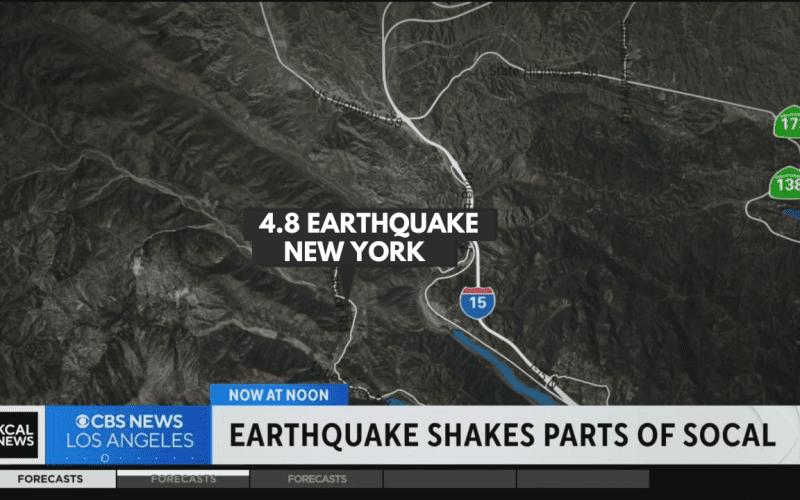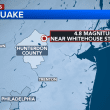New York City and New Jersey were recently shaken by a 4.8 magnitude earthquake, causing widespread concern and curiosity among residents. Understanding the nuances of such events is crucial for ensuring safety and preparedness. We’ll delve into the details of the earthquake, providing live updates, safety tips, and insights to help you navigate through this event.
Overview of the Earthquake
The 4.8 magnitude earthquake, centered in the vicinity of NYC and New Jersey, occurred While earthquakes are relatively rare in this region, the event has prompted discussions on preparedness and response strategies.
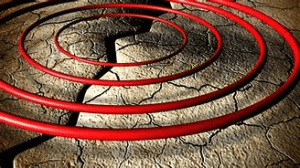
Reported Earthquake Details
The temblor, measuring 4.8 on the Richter scale, struck approximately 5 miles north of Whitehouse Station, New Jersey, at approximately 10:23 a.m. on Friday, as per the United States Geological Survey (USGS). Its epicenter lay roughly 45 miles from New York City, where residents recounted feeling tremors affecting furniture and floors.

Assessment of Impact
Fortunately, there have been no significant disruptions or damage reported in either New Jersey or New York following the earthquake.
Response from Authorities
New Jersey Governor Phil Murphy issued a statement, confirming the activation of the State Emergency Operations Center in response to the seismic event. He urged residents to refrain from dialing 911 unless faced with a genuine emergency situation.
Understanding Magnitude and Impact
The magnitude of an earthquake indicates its relative size and potential impact. In this case, the 4.8 magnitude suggests moderate shaking with the potential for light to moderate damage to buildings and infrastructure.
Live Updates
Stay informed with real-time updates on the earthquake’s aftermath, response efforts, and any developments in the situation.
Reports and Observations
Authorities are actively monitoring the situation, assessing any damages and ensuring public safety. Stay tuned for updates from official sources regarding evacuation notices, road closures, and safety precautions.
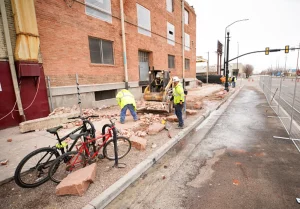
Community Response
Witness accounts and community responses provide valuable insights into the impact of the earthquake on residents and businesses. Share your experiences and observations to contribute to the collective understanding of the event.
Safety Measures
In times of seismic activity, it’s essential to prioritize safety and take proactive measures to mitigate risks.
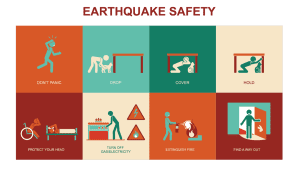
Emergency Preparedness
Review your emergency preparedness plans, ensuring that you have essential supplies, communication channels, and evacuation routes in place.
Building Safety
Assess the structural integrity of your home or workplace, identifying potential hazards such as unsecured furniture or objects that may pose risks during an earthquake.
Stay Informed
Stay updated on developments and advisories from local authorities, following their guidance on safety protocols and evacuation procedures.
Is it common to experience earthquakes in NYC and New Jersey?
Earthquakes are relatively rare in this region compared to seismically active areas. However, they can occur due to geological factors.
What should I do during an earthquake?
During an earthquake, seek shelter under sturdy furniture or in doorways, away from windows and heavy objects. If outdoors, move to an open area away from buildings and power lines.
How can I prepare for future earthquakes?
Prepare an emergency kit with essentials such as water, food, first aid supplies, and flashlight. Familiarize yourself with evacuation routes and communication channels.
Are aftershocks expected after the initial earthquake?
Aftershocks are common after earthquakes and may occur in the hours, days, or even weeks following the initial event. Stay vigilant and be prepared to take safety precautions if aftershocks occur.
What resources are available for earthquake preparedness?
Local authorities and organizations often provide resources and guidelines for earthquake preparedness, including educational materials, training sessions, and community outreach programs.
How can I help others affected by the earthquake?
Consider volunteering with relief organizations or donating to reputable charities providing assistance to affected communities.
Conclusion
As the situation continues to unfold, staying informed and prepared is key to navigating through the aftermath of the earthquake. By following safety guidelines, supporting one another, and staying updated on developments, we can collectively weather this event with resilience and solidarity.






